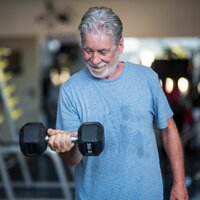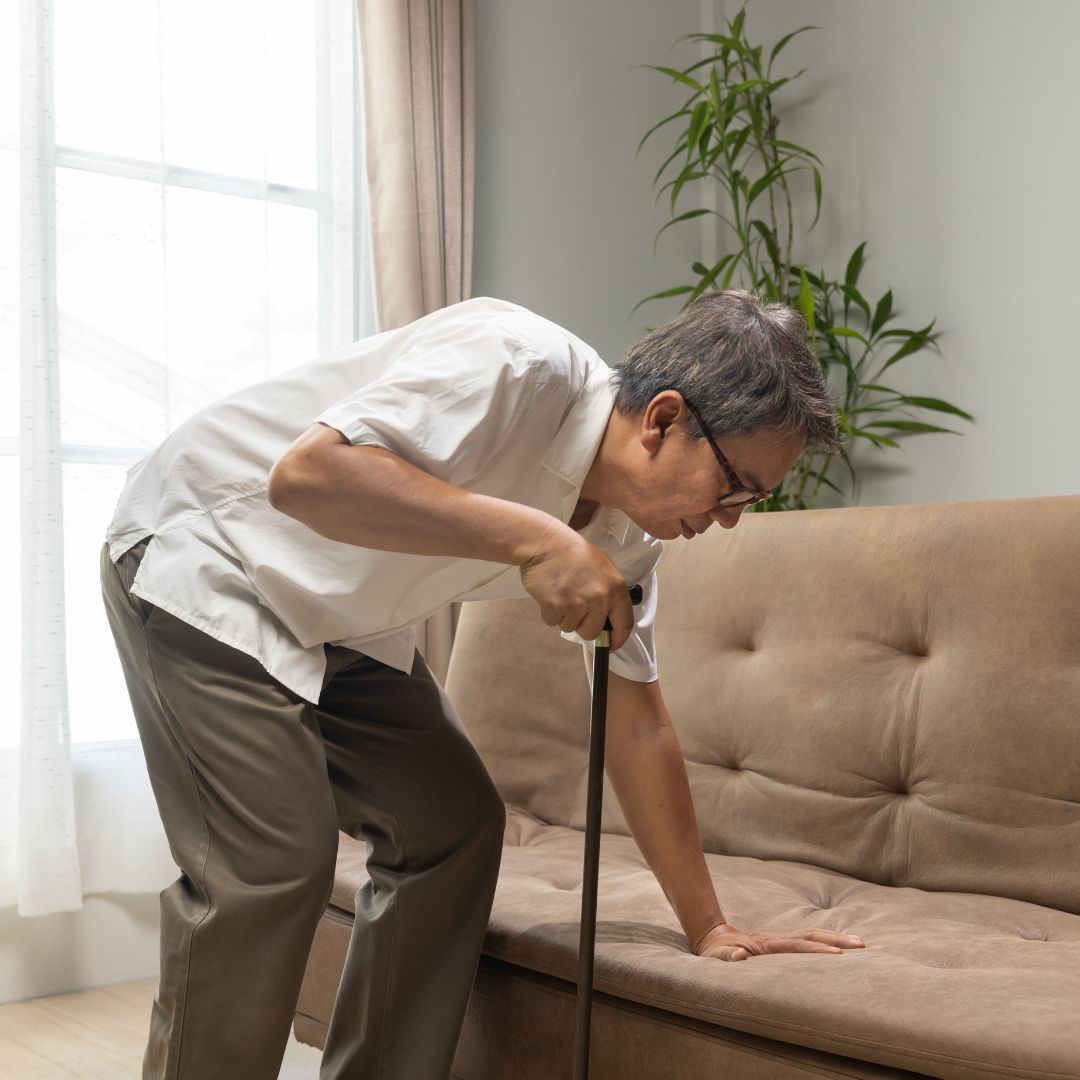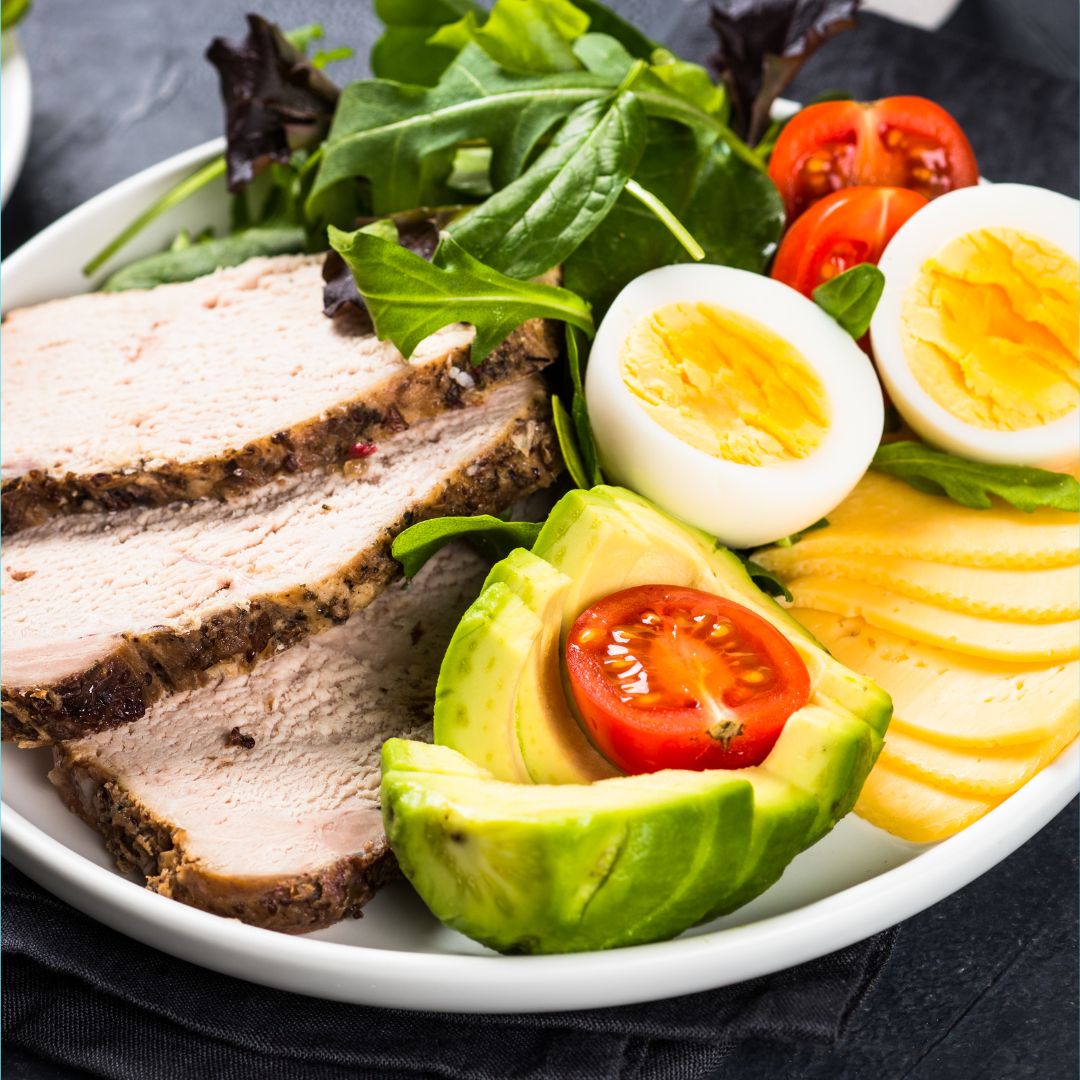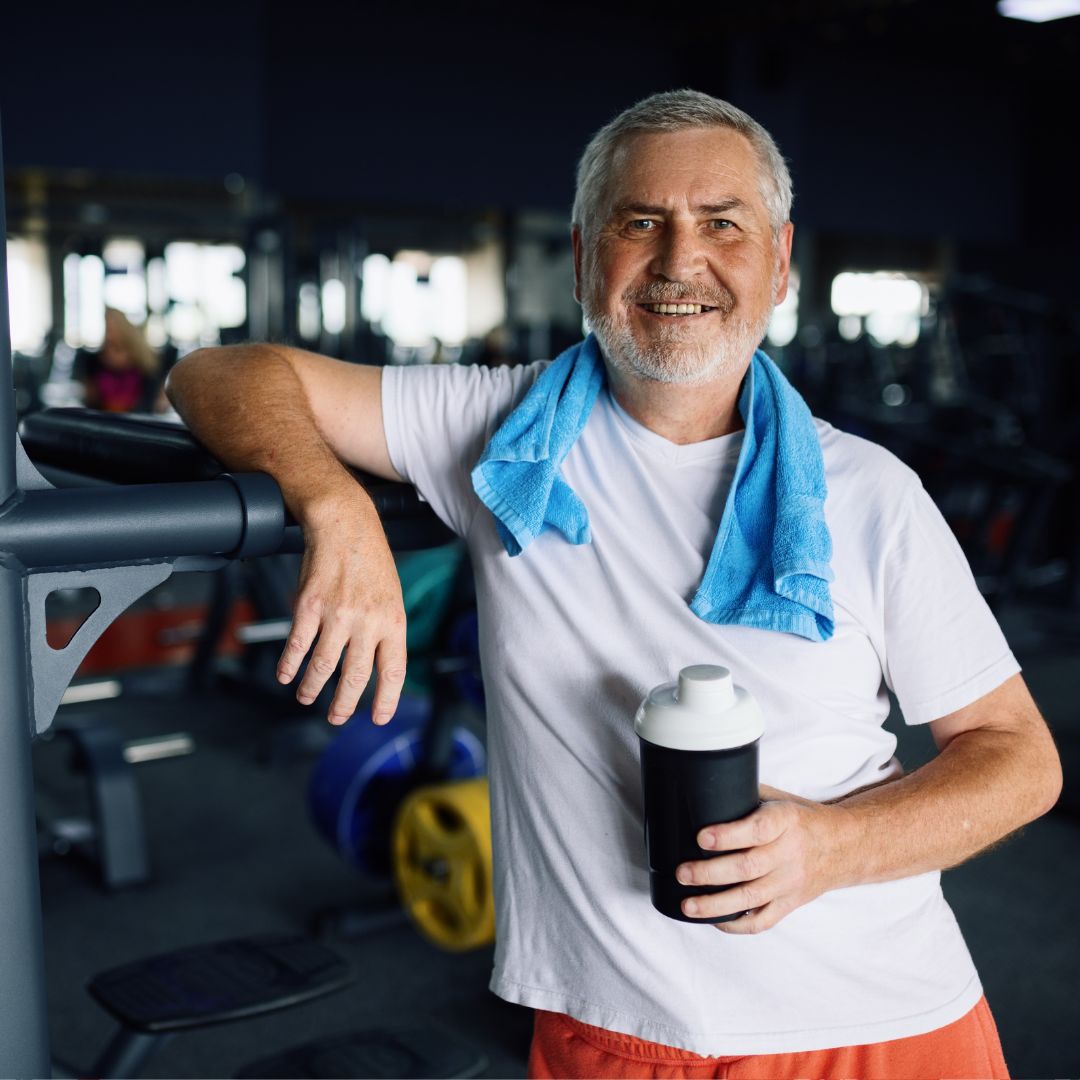There are no products in your shopping cart yet.
Quick weight loss for men

Holiday weight gain is a topic that many men can no longer ignore. It's time for a change.
It was a fun time, but how do you shed those indulgent pounds?
When you're younger, it’s easier
When you're still (relatively) young, it’s often doable with some exercise, cutting out sweets, and giving up alcohol for a while. You quickly return to your target weight. Men, in particular, can lose weight with relatively little effort.
When you mentally prepare for it, there’s nothing wrong with indulging now and then. You live your life the way you want and occasionally go for a reset. I know quite a few people who eat and drink whatever they like on weekends, but stick to healthy eating during the week. It's a great balance that can work well. Discipline during the week is the key. Eating healthy, staying active, and getting good sleep. It’s not about willpower but discipline.

The aging body doesn’t shed fat and water as easily.
Suddenly, you notice it takes longer to get back to your ideal weight. The impact of "partying" becomes greater. You feel less fit after a weekend of alcohol and snacks, and recovery takes longer. Slowly but surely, you begin gaining a bit of weight.
As you get older, your body and metabolism go through changes that:
- Make it harder to lose weight,
- Cause weight gain to happen faster,
- And slow your recovery after, for instance, a night out.
The Aging Body and Weight Loss
Factors that play a role:
- Hormonal changes
Men also experience hormonal changes as they age. Testosterone levels decrease over the years, leading to estrogen dominance. This results in more fat (especially around the belly), less muscle mass, and a slower metabolism.
- Muscle loss (sarcopenia)
People gradually lose muscle mass, which contributes to a slower metabolism. Less muscle means fewer calories burned, leading to weight gain, even if your diet remains the same. This is a major motivation for me to do weight training 3-5 times a week.

General estimates of muscle mass loss:
- Ages 30 to 40: Muscle loss is very small, about 0.5% per year.
- Ages 40 to 50: Loss remains the same or increases slightly, about 0.5-1% per year.
- Ages 50 to 60: Loss becomes more noticeable, around 1-1.5% per year.
- Age 60 and older: Loss can accelerate, reaching 1-2% or more per year.
By the time men and women reach age 60, they have typically lost 15-35% of their muscle mass, depending on their health, activity level, and hormones.
- Lifestyle changes
As people get older, they often become less physically active. This can be due to more sedentary jobs, less energy, or physical limitations. A lower activity level contributes to weight gain and a slower metabolism.
- Sleep quality
Older people often experience changes in sleep quality, such as more interrupted sleep or shorter sleep durations. Lack of sleep can lead to higher levels of the stress hormone cortisol, which is linked to weight gain, especially around the belly. Poor sleep also disrupts hormonal balance, causing hunger hormones (leptin and ghrelin) to become unbalanced, increasing appetite.
- Alcohol tolerance and recovery
As you age, your body processes alcohol less efficiently. The liver breaks down alcohol more slowly, making recovery take longer. You may also feel more tired the next day due to the reduced sleep quality caused by alcohol consumption.
- Insulin resistance
Insulin resistance plays a major role in the changes your body undergoes as you age, contributing to problems such as difficulty losing weight, faster weight gain, and decreased energy.

What is insulin resistance?
Insulin resistance means that the cells in your muscles, fat, and liver don’t respond as well to insulin, the hormone that helps absorb glucose (sugar) from the blood. As a result, the pancreas produces more insulin to get glucose into the cells. When this process gets out of balance, more glucose remains in the bloodstream, eventually leading to higher blood sugar levels and type 2 diabetes.
How does insulin resistance affect weight gain and weight loss?
a. Fat storage
When insulin isn’t working effectively, glucose stays in the blood instead of being used as energy by the cells. This leads to increased fat storage, especially around the belly, as excess glucose is converted into fat.
b. Less effective fat burning
Insulin is also a "storage hormone," meaning the body remains in fat storage mode as long as insulin levels are high. This makes it harder to burn fat and lose weight, even if you try eating less or exercising more.
c. More hunger and cravings
Insulin resistance can cause blood sugar fluctuations, triggering hunger and cravings, especially for carb-heavy foods, making it harder to control calorie intake.
d. Visceral fat
Insulin resistance promotes the accumulation of visceral fat (fat around the organs), which is not only harder to lose but also increases the risk of heart disease and type 2 diabetes.
e. Insulin resistance and recovery after alcohol or poor sleep
Insulin resistance can also affect how you recover after a night of drinking or poor sleep.
f. Disrupted blood sugar levels
Alcohol can disrupt blood sugar levels, and if you’re already insulin resistant, this effect becomes stronger. This makes you feel more tired and sluggish.
g. Increased inflammation
Insulin resistance is often accompanied by chronic inflammation in the body, slowing the recovery process after physical exertion, poor eating, or a night of partying.
Age and insulin resistance
As you get older, the chances of developing insulin resistance increase due to factors like hormonal changes, reduced muscle mass, increased body fat, and a more sedentary lifestyle. Genetics and lifestyle choices, such as diet and physical activity, also play a role.
Why weight loss becomes more difficult
All these factors make it harder to lose weight, cause faster weight gain, and slow your recovery after, for instance, a night out. Hormonal imbalances, muscle loss, a slower metabolism, insulin resistance, and reduced activity are all factors that play a role.
Weight Loss Plan
-
Balance your hormones
It’s nearly impossible to lose weight when your hormones are out of balance. Some think: "I’ll just fix my hormones and lose 10 kg without effort," but that's usually not the case. Masculine Balance therapy can help balance men's hormones.
-
Move a lot
Strengthen your muscles and endurance. You won’t lose weight just by moving, but it's hard to lose weight healthily without physical activity. Exercise doesn't just burn calories; it also balances hormones (serotonin, dopamine, insulin, thyroid), helping everything run more smoothly. Walking alone usually isn’t enough, and once a week won’t cut it.
-
Stabilize your blood sugar
Consider taking supplements like Berberine or medication such as Ozempic if applicable. While some resist taking pills, it can be necessary when your satiety and hunger hormones are out of balance due to long-term weight issues.
-
Eat lots of protein and healthy fats
Carbohydrates cause blood sugar spikes, while fats and proteins do not. By replacing carbs with healthy fats and proteins, you allow your body to recover and heal. Keep track of your protein intake to maintain muscle mass and boost metabolism.
It's possible to reach a weight where you feel good. Once you're in the flow, you'll see how easy it actually is.
 English
English





Slik ozempic🍼🥤?